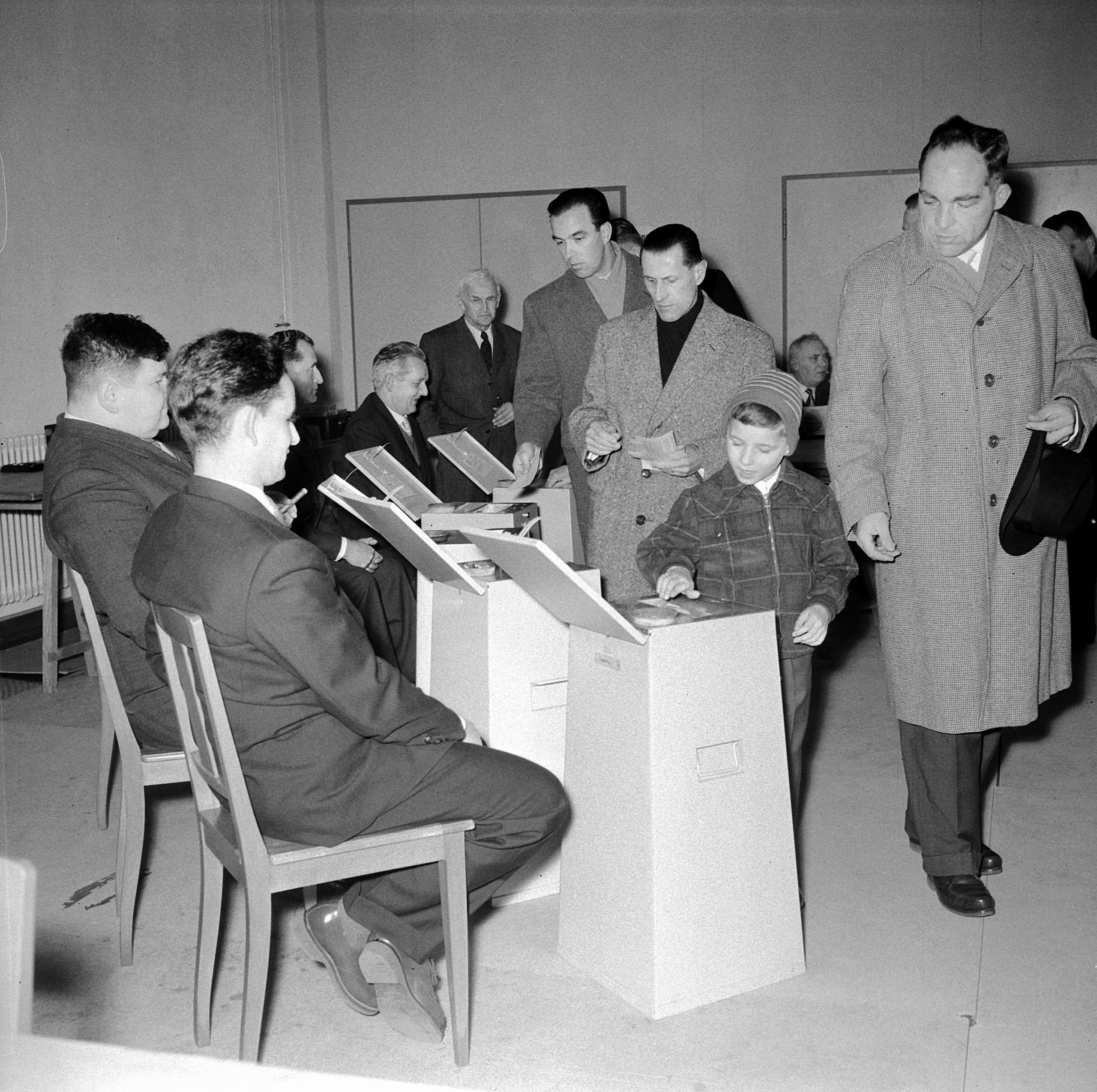E-voting makes slow but steady progress

About 70% of Swiss expatriates will be able to cast their ballots online for the parliamentary elections in October 2015. The Organisation of the Swiss Abroad (OSA) is disappointed that not all of its constituents will be able to vote electronically.
But the pressure group remains hopeful that every registered Swiss living abroad will be able to vote electronically by the time the 2019 elections are held.
Switzerland is a pioneering country in e-voting. In contrast to Norway, which decided in July 2014 to temporarily shelve online voting trials due to security concerns, the Swiss have continuously expanded their e-voting option.
The number of potential Swiss participants has continued to grow, and the security of the electronic voting and election process has been improved. The next major step will take place this year, when the 14 Swiss cantons participating in trials introduce second-generation e-votingExternal link systems – reaching about 70% of expatriates eligible to vote.
Each voter abroad will newly receive a series of individual verification codes along with the personal election material. For the election to the House of Representatives, for example, there will be one code per candidate.
After a vote has been cast, the system will forward a verification code for the sender to compare against the code on the voting documents. A match confirms that the desired candidate was chosen. Using this method, any possible manipulation of the vote would immediately be apparent.
More safety, more voters
Security experts all agree that this form of individual verifiability makes e-voting intrinsically more secure. For this reason, the government is set to make e-voting more widely available in the coming years.
In fact, some Swiss-German cantons are even planning to extend their 2015 e-voting trials to selected communes in Switzerland itself.
In Geneva, up to 30% of domestic voters are already able to use the internet to cast their ballots.
There is a unique twist to e-voting in another canton in the French-speaking part of the country. Voters in Neuchâtel sign a contract with the canton’s e-government portalExternal link as a prerequisite for e-voting. All voters who have signed a contract are allowed to vote online.

More
E-voting wins ground despite risks and setbacks
The cantons themselves decide whether or not to participate in Switzerland’s e-voting trials, while the federal government sets the overall strategy. As the security levels are upgraded, the numbers of voters allowed to vote electronically are increased.
Previously, only 10% of Swiss expatriates were allowed to vote electronically. This will be increased to 30% with the introduction of the second generation of e-voting procedures with individual verifiability using codes. The third generation of e-voting procedures will be introduced from 2020 onward. In principle this means that 100% of voters abroad could then cast their ballots electronically. Registered expatriates eligible to vote amount to 3% of the total electorate.
Progress since 2011
But it is not certain that all cantons will offer e-voting within the next six years, as only 14 out of 26 have signed on.
Some cantonal authorities have cited a lack of funds by way of explanation. Others are sceptical about the security of the existing systems. They want to wait and see how second-generation e-voting technology measures up.
This of course has implications for the number of expatriate Swiss who can vote via the internet. Those who cannot must cast their ballots using conventional post, which can be time-consuming and cumbersome.
However the Swiss abroad who hail from one of the 14 cantons participating in e-voting trials will be able to electronically elect the members of the House of Representatives next year.
As the elections to the Senate, the other parliamentary chamber, are conducted according to a completely different system that varies from canton to canton, e-voting for these elections will be available in only 12 cantons.
“The OSA made a huge effort to make e-voting available for the Swiss abroad in time for the 2015 parliamentary elections, initiating a petition in 2012 that garnered 15,000 signatures,” says OSA co-director Ariane Rustichelli. “The OSA regrets that this is not the case,” she adds.
Nonetheless, enormous progress has been made. The 14 participating cantons cover 70% of the approximately 155,000 Swiss abroad who are eligible voters. This is a four-fold increase from the 2011 elections.
Paper quandary
The OSA has set a new goal of having e-voting available to 100% of their constituency in time for the 2019 elections.
But even if all 26 cantons agree to offer e-voting, a flaw in the system remains, namely, the delivery of voting material. Everything – the voting card, ballot and codes – is available in paper form only, so it has to be delivered by conventional post.
“There has been a lot of thought given to introducing paperless e-voting, but the time frame for its implementation is not yet clear,” says Thomas Wehrli, leader of the e-voting project in canton Aargau.
Technically, paperless, fully electronic and completely secure e-voting is feasible. But implementing such a system would be an incredibly sophisticated, complex task. Its realisation thus remains in the distant future.
Instead, attention has turned to the possibility of introducing a second device into the process. Completely disconnected from the internet, it would be something like the devices banks provide to their customers for e-banking.
New methods need time
“The choice of a voting technology is always embedded in a political culture,” explained Uwe SerdütExternal link, vice-director of the Centre for Research on Direct Democracy in Aarau.
He pointed out that “most communes still hold citizen assemblies” and that the introduction of postal voting – which was then a second option to voting at the polls – needed about 30 years before it became universally accessible.
Canton Basel Country was the first to introduce postal voting, in 1978, while Valais and Ticino, the last two cantons, did not offer it until 2005. “It looks like the administrative and political process for e-voting will also take about 30 years,” Serdüt estimates.
Seen from this perspective, it might be that the year 2030 is a realistic time horizon for paperless e-voting to become universal.
E-voting history
The first electronic voting trials took place in 2003 at a local level local in canton Geneva, followed by tests in cantons Neuchâtel and Zurich in 2005.
Geneva, Neuchâtel and Zurich each have their own systems, which are being continuously refined and further developed. The systems used in Zurich and Geneva are available by contract to other cantons. The Geneva system is used in the cantons of Basel City, Bern and Lucerne, while the cantons of Fribourg, Graubünden, Solothurn, Schaffhausen, St Gallen, Aargau and Thurgau share a single copy of the Zurich system and have joined together in an electronic voting consortium known as Vote électronique.
The four cantons of Basel Country, Graubünden, Aargau and St Gallen did e-voting trials for the first time in the parliamentary elections of 2011. Canton Zurich froze work on e-voting in 2011 to review the state of affairs. It will resume participating in trials from next year. Glarus will join the e-vote consortium, which now includes nine cantons, bringing to 14 the number of cantons participating in the e-voting trials.
(Adapted from German by Kathleen Peters)

In compliance with the JTI standards
More: SWI swissinfo.ch certified by the Journalism Trust Initiative











You can find an overview of ongoing debates with our journalists here . Please join us!
If you want to start a conversation about a topic raised in this article or want to report factual errors, email us at english@swissinfo.ch.